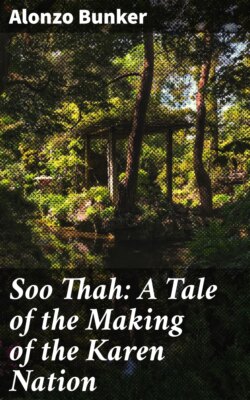Читать книгу Soo Thah: A Tale of the Making of the Karen Nation - Alonzo Bunker - Страница 5
На сайте Литреса книга снята с продажи.
INTRODUCTION
ОглавлениеTable of Contents
THE work of evangelizing the Karens of Burma has now gone on for two generations. Its successes have constituted a miracle in modern missions. The God-given men and women who have laboured in it have been intense in character, and the work has been absorbing and all-consuming. Accordingly, those who have known it best, have found little time to weigh the achievements, or to write them up, as they deserve to be. Perhaps this would not yet be done at all if, in the providence of God, the active participants in the work, through physical disablement, were not driven home, where, coming face to face with the supporters of the Mission, endless catechizings compel the tired missionary to take an inventory of stock. From long familiarity with the work abroad, the missionary can scarcely realize how little the people at home know of the process going on in the lives of disciples just emerging from the long night of paganism.
The church should, therefore, felicitate itself that as incidental to Dr. Bunker's last well-earned furlough in America, he was led to present to us the following story of SOO THAH, the Karen convert. Such a book has long been greatly needed. The story is indeed a composite, it is called a romance, but it is true to the life, painted in most realistic colours of feature and setting. It was the privilege of the present writer in the year 1890 to spend several days with Dr. Bunker and his excellent associate workers in the Toungoo field, Burma, from which the story draws its materials. It is a field in which nearly one hundred Karen churches now exist, numbering about four thousand members. In this field may be seen mission work in every stage of its rise, growth, and increasing power,--the raw, uncouth heathen, the awakened convert begging to be taught, the village and station schools filled with cleanly, bright-eyed pupils, the training classes of young preachers, the veteran pastors, and the associational meetings, with thousands of radiant, praiseful Christians gathered from the mountain sides of a vast district, absorbed in their new relations to the Kingdom of God.
The reading of this book has brought it all up with vividness, tenderness and power. Dr. Bunker has used a graphic pen. He has caught the luxuriance of the, forests, the grandeur of the mountains, and the soft tints of the oriental sunsets, and made his disciple "live, move and have his being" in a world of reality and charm.
The lands of heathendom are far from being the dismal places which many conceive them to be. There "only man is vile," and, thank God, through the labours of such men as he who tells the story, man also is being reclaimed to be the fit denizen of such scenes as the author so glowingly depicts.
Better still, this well-told story sets before us in realistic touches the making of the disciple himself, recovered from the havoc which sin and demon-worship had wrought. In the story of Soo Thah, we see the child of superstition step by step emerge, develop, expand, and rise to such moral altitude as moves us with new appreciation of the glorious Gospel of the blessed God.
Then to crown all, in this faithful, concrete presentation of mission work, we see the elements of the process whereby a nation is being new-born in a day; redeemed unto God, and commended even to world-powers, because of the virile results realized through the union of a divine gospel with human nature in the simple, such as is afforded in the Asiatic hill-tribe men. There is in Burma to-day among the Karens alone, a community of at least one hundred thousand souls pervaded by Christian sentiment. It is the best appreciated and most loyal element of the native citizenship in British India. Such a citizenship is not only a tribute to the Gospel, but also to the benignity of the one colonizing government of Europe which has given fair play to Christian missions. It is "a spectacle unto the world, and to angels and to men," the promise and prophecy of an ultimate transformed humanity.
HENRY C. MABIE., BOSTON, May 2, 1902.
